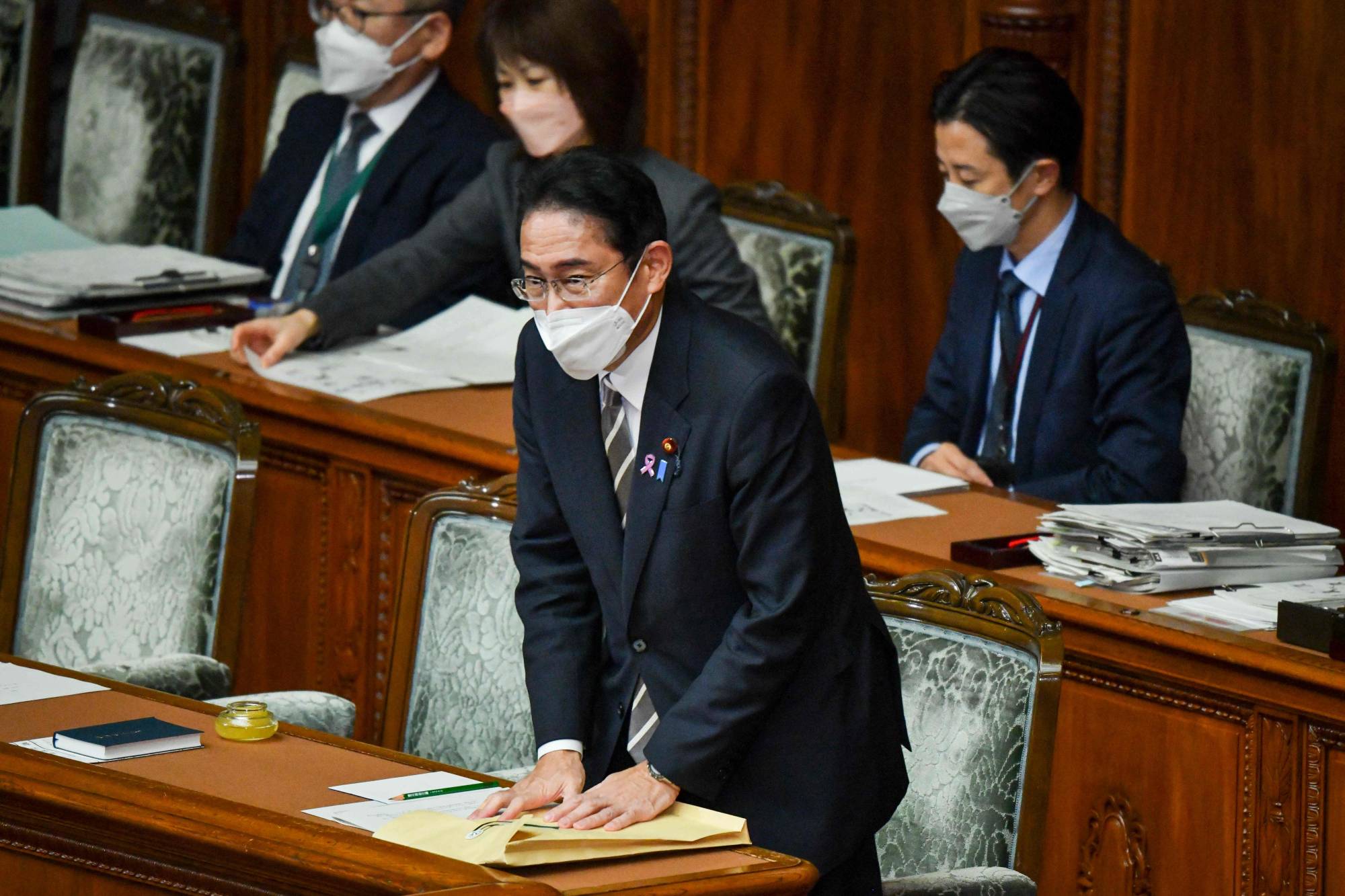Despite Cabinet resignations and controversy over the Unification Church, the parliamentary session ends Saturday having approved a supplementary budget, a ban on soliciting donations through coercion, an electoral district restructuring plan and a revision of the infectious disease law.
For Prime Minister Fumio Kishida, the passage of these four key pieces of legislation marks a much needed parliamentary victory at a time when his administration is suffering from low approval ratings, in part due to a series of scandals that led to the resignation of three Cabinet ministers.
For the opposition parties, the autumn session, which began Oct. 3, saw increased cooperation between the Constitutional Democratic Party of Japan and Nippon Ishin no Kai. The center-left CDP and the center-right Nippon Ishin forged an agreement in late September to work together during the session, something that could be a basis for further collaboration in parliament next year.


















With your current subscription plan you can comment on stories. However, before writing your first comment, please create a display name in the Profile section of your subscriber account page.